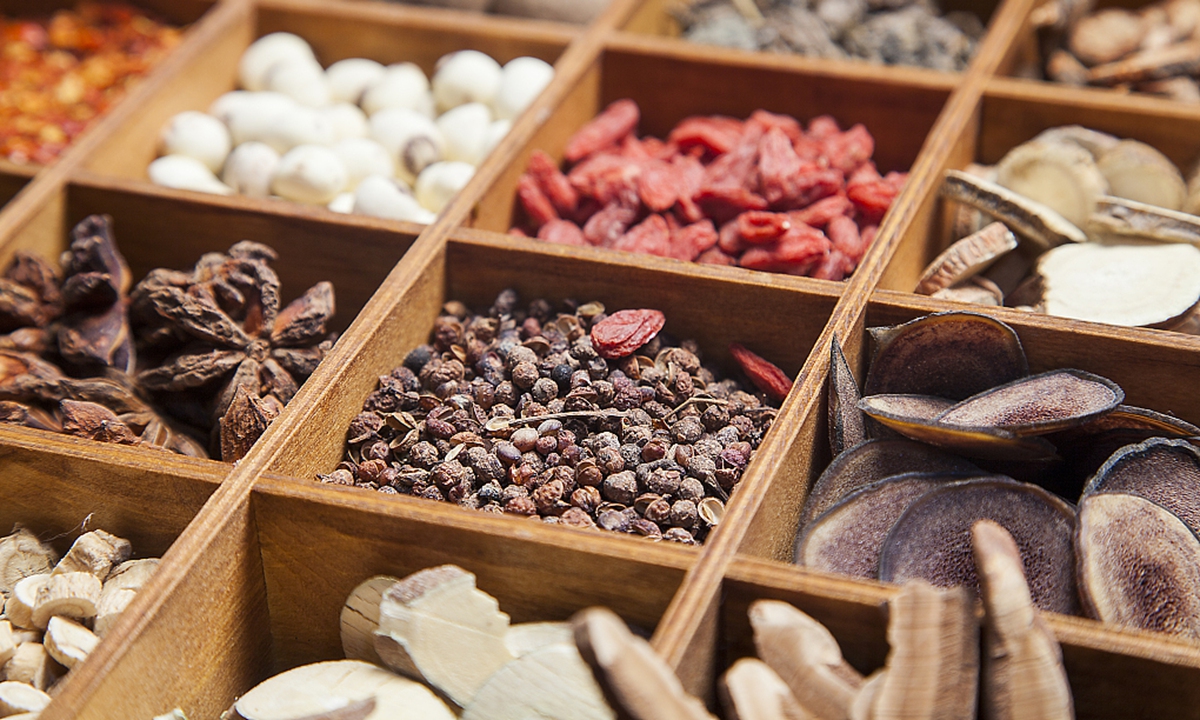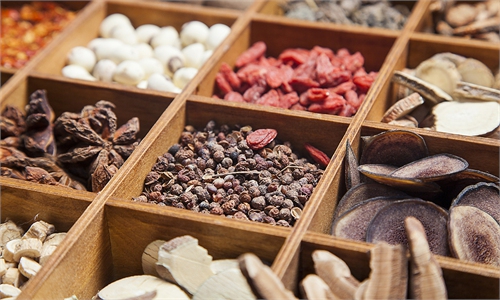
Traditional Chinese Medicine Photo: CFP
On a day when Taiwan authorities reported the biggest one-day increase of COVID-19 infections, local media reports said the island was running out of traditional Chinese medicine (TCM) to fight the virus. Since the outbreak of the epidemic, Taiwan has followed the footsteps of the mainland, insisting on a dynamic-zero policy and using traditional Chinese medicine as a treatment.
Taiwan-based media outlet udn.com reported on Saturday that amid a spike in infections Taiwan's health authority had offered NRICM101, the island-developed herbal medicine, to home-quarantine patients for free.
The anti-COVID authorities in Taiwan on Saturday reported 4,123 new locally transmitted cases, the highest daily figure ever. Demand for TCM has soared, causing shortages, Taiwan media reports said.
The Global Times learned from Taiwan residents on Saturday that like people in the mainland, people in Taiwan also have the habit of taking TCM and trust it very much.
Despite the US-made oral medicine Molnupiravir being imported to the island in February, Taiwan people believe that the combination of TCM and Western medicine is the best way to prevent disease, a Taiwan resident surnamed Chou told the Global Times.
It is worth mentioning that most of the raw materials for Chinese herbal medicine made in Taiwan are procured from the mainland, Taiwan-based media reports noted.
However, after health platform Dingxiang Yisheng published an article advising the public not to take Lianhua Qinwen as a preventive medicine, some Taiwan media outlets wrote groundless reports claiming that Lianhua Qingwen could cause stomach and kidney damage. These reports ignored the fact that Lianhua Qingwen and NRICM101 are both based on ancient Chinese remedies that are more therapeutic than preventive.
Wang Yu-Ching, a Taiwan cross-Straits observer from Peking University, told the Global Times on Saturday that Taiwan's NRICM101 is basically a copy of Lianhua Qingwen, which was first released in 2004.
"If Lianhua Qingwen is really bad, then why did Taiwan imitate it? This is a brazen double-standard of scolding something and benefitting from it at the same time," Wang said.
Taiwan secessionists who advocate de-Sinicization are criticizing traditional Chinese medicine on the mainland while making it themselves on the island, Wang said, adding that their efforts to cut themselves off from China will prove impossible.


